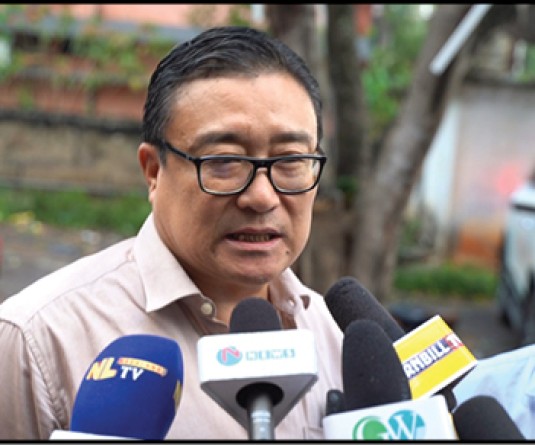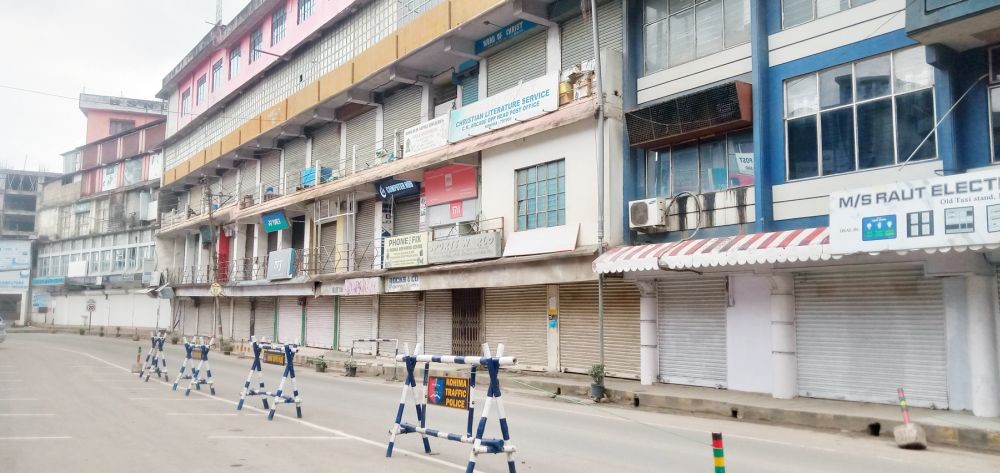
State level review deliberates to make agriculture a means of economic goals, alleviation of poverty and self-reliance
Morung Express News
Kohima | October 19
The Department of Agriculture, Government of Nagaland began its State level review of activities in Kohima today. The inaugural function was graced by Dr. N Benjongliba Aier, Parliamentary Secretary for Agriculture as the chief guest.
Outlining the significance of the review meeting in terms of framing strategy and reviewing of the program implemented by the Department, Dr. N. Benjongliba stated that the deliberation on the current status in sustainable development of agriculture will lead to improved farm income, along with a vision to achieve food security.
“Agriculture has to be seen as means of employment-led economic goals, alleviation of poverty and self reliance through its linkages and multiplier effect, which has opened a new opportunity and challenge of stiffer competitions,” said Dr. Aier.
Despite its noteworthy performances in the productions of foodgrains in the recent years, Nagaland continues to be deficit in foodgrain production and major commodities like rice and pulses are still imported from other states. In order to have impressive growth rate in foodgrain production, Dr. Aier maintained that there should be improvement in productivity rather than increase in the area with a special focus on practice of the Integrated Nutrient and Pest Management System in the foodgrain production program. The need to sensitize production patterns to changing conditions of demands with careful production plan on marketing aspects was also pointed out.
The issues and challenges to address in agriculture productivity and sustainability were pointed out by the Parliamentary Secretary, such as land fragmentation and landholding system, which threatens the sustainability, low farm power availability, low farm mechanization, lack of good governance and insurgency problems etc. To address the challenges, rain fed agriculture, high value crops, develop location specific farming system models and sustainability for long terms gains need to be promoted.
“The monsoon and the market are two major determinants of a framer’s wellbeing and efficient insurance mechanism for small farmers against the failure of their crops due to drought, excessive rains or floods, pest incidence is required,” he stated.
Dr Aier also urged the need to focus on social and gender equity, which he maintained needs considerable attention, since “the average size of farm holding is decreasing and feminization of agriculture is increasing due to the fact that men folk are engaged in many other activities.”
Strengthening of Agriculture Produce Marketing Committee (APMC), encouraging educated youth to practice farming, and recognizing the interactions and climate change in agriculture as a key part of sustainable development and achieving food security were also cited.
In conclusion, Dr. Aier urged for a holistic approach to agricultural developments in order to resolve problems in the state for better development and self-sufficiency in the near future.
In his keynote address, T. Imkonglemba Ao, IAS, Commissioner and Secretary and APC informed the gathering on the need to increase Nagaland’s GDP in the agricultural sector. Nagaland’s GDP growth rate under Agri and allied sector stands at 29 per cent which is very less when compared to other states or countries, where agriculture is the dominant sector. Increasing the GDP can be achieved with the integration of rain fed farming and permanent cultivation, enhancing the income of the farmer and introduction of new crops.
Further stressing on the need to sustain farming, Ao stated, “Farmers are never dreaming to becoming rich but farmer’s mentality is: Can I sustain with my production this year for the next harvest?” Therefore Ao suggested value addition to enhance the farmer’s their cash revenue, in addition to marketing business.




